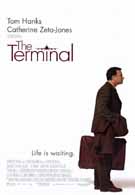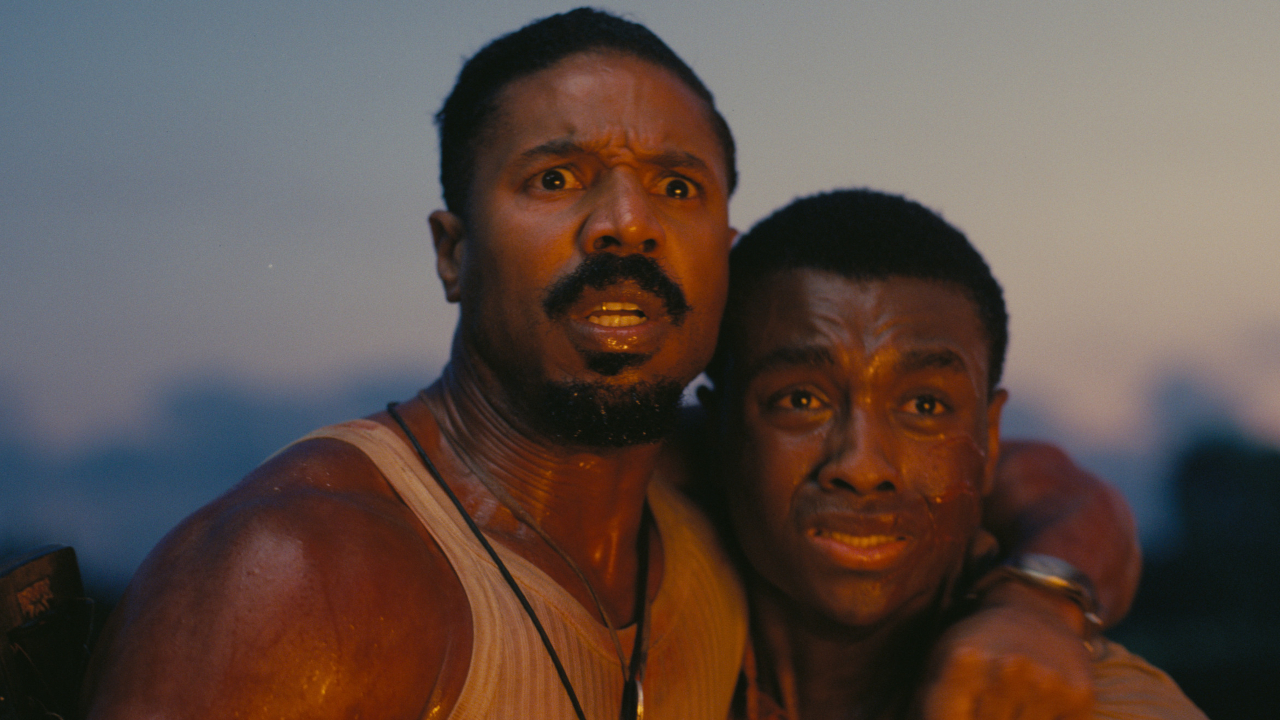Steven Spielberg seems to go through phases of obsession. When he made Schindler’s List he immersed himself in the holocaust, when he did Saving Private Ryan he became obsessed with World War II, and after A.I. he focused on future fiction and released Minority Report. After Catch Me if You Can, his latest passing interest is apparently airports and Tom Hanks’ Viktor Navorski pays the price as Spielberg strands him indefinitely in a fictional terminal.
Navorski you see is from a tiny Eastern European country torn apart by a fierce coup. He arrives in New York, passport in hand and armed with a couple of poorly understood English phrases, only to discover his country no longer exists. His visa is denied. He cannot enter New York nor is there any way he can be returned home. He’s fallen through what studiously strict airport supervisor Frank Dixon (Stanley Tucci) describes as a crack in the system and as such is unacceptable. He’s released to the confines of the airport for what Dixon predicts may only be a few days, but soon turns into months. Viktor cannot leave or he risks federal prison, he cannot go home since there’s no one to take him, and so he waits in the ultimate traveler’s nightmare.
The specifics of all this are a little confusing and we never really seem to understand why Viktor won’t simply sneak out of the airport when no one is looking. While the premise may be a little shaky, it’s Hanks’ utterly convincing performance that sells it. He plays Viktor as amiable and serious, even when struggling to speak English through a thick, Russian-like accent. The accent by the way is pretty convincing, in part because Viktor isn’t prone to speaking often or quickly. Hanks struggles through wonderfully halting speech as the obviously intelligent foreigner stumbles in attempting to cope with his bizarre and unenviable situation, which would paint him unfairly as a buffoon. Sure, there are plenty of jokes about his inability to understand English and maybe that could be considered cheap. But Spielberg’s take is kind and Hank’s performance so gentle and subtle that the jokes come off as genuine and Viktor’s potentially cliché confusion is both entertaining and touching. It’s just impossibly easy to warm up to Viktor, as it almost always is to any Hanks character. He’s someone you can instantly care about and root for, whether looking for precious food-buying quarters or constructing sleeping arrangements in some back corner of a lonely airport.
Spielberg shoots Viktor lovingly, a forgotten traveler going nowhere while everyone else is going somewhere. Spielberg bathes him in flickering neon lights, sometimes flashing glaring airport brights right into the camera so that the light flows and crashes around him in key emotional moments. The airport itself even takes on life of its own through the antiquated arrivals and departures board Spielberg uses as sort of a title card between scenes. I can’t help but enjoy the supporting characters he surrounds him with too, airport employees who are at first suspicious but eventually embrace him. A motley crew of immigrants and slackers driving food trucks and mopping floors, they’re the blue collar people of the “real” world. They give America a positive face to Viktor in contrast to the evil, unfeeling one portrayed by the hidebound immigration administration who holds him prisoner.
Then there’s Catherine Zeta-Jones, who slips quite literally into the picture a little ways in, when Viktor is hopelessly mired in his bad situation. Theirs is an abortive attempt at a love story, which while I admire it for the brave way in which Spielberg ends things, and maybe even could have enjoyed it as a way to bring out the best in Hanks’ character, fails utterly on the spiked heels of Zeta-Jones. The woman can’t act. She’s useless unless playing a heartless bitch. High Fidelity, Intolerable Cruelty, even Chicago, these are roles where she works because she’s playing a horrid, painfully shallow person. She’s incapable of anything else and proves it here when asked to play an aging and hopelessly confused stewardess. It’s impossible not to hate her, and not just because she can’t commit.
If you’ve ever flown, you’ve experienced the fake friendliness of a stewardess in flight. Now imagine if that same stewardess took that fake smile, condescending tone, and plastic demeanor and applied it to every aspect of her personal life. Imagine someone who comes off so faux that even in the movie’s most heartfelt moments she comes off cold, distant, and forced. It seems impossible that she could be a real person. Oh sure, tears are shed, but you get the sense that it’s all just some sick act. How could Viktor like someone like this? How could he even talk to her? How can you root for Viktor to woo her when you’re busy hoping she falls down an escalator?
Thank god their relationship isn’t the only focus of the film, or The Terminal would be a total disaster. Blissfully, Catherine’s screen time is limited, their relationship only one of many threads winding the otherwise sweet and enjoyable Terminal together. This is an otherwise pretty simple movie that relies on Hanks to kick in another admirable performance and gives Steven freedom to create. Both deliver and the movie for the most part scores, in spite of muddied premise and a singularly bad casting choice.











